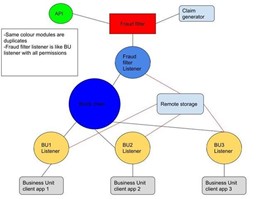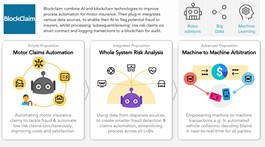Compliance Team
Angels Den

Dear User,
You may have heard about the new General Data Protection Regulation (“GDPR”), that comes into effect May 25, 2018.
We would like to ensure you that your personal data is safe with us. Please read the details regarding the processing of your personal data and if you agree with the processing as described below, please click the ‘I agree’ button.
Please be informed that you can withdraw this consent at any time.
1) What data are we talking about?
We are disclosing details regarding the processing of personal data that is collected within our calls and in connection with your use of Angels Den’s platform, Websites and other functionalities of Angels Den, including those saved in cookies files.
2) Who will be the controller of your data?
Angels Den Funding Limited (hereinafter referred to as AD) will be the controller of your data (Angels Den means all entities from the Angels Den capital group, which includes Angels Den Funding Limited with its registered office in London and all entities related to it and dependent on it) and only our Trusted Partners.
3) Why do we want to process your data?
We process this data for the purposes described in our Privacy Policy, including:
- compliance with any legal requirements and obligations,
- ensuring that content from our Website is presented in the most effective manner for you,
- marketing purposes,
- providing you with our services (including the completion and support of immediate activity required to provide you with information and deliver products and/or services that you request and to deliver any contracts entered into with you), or
- as otherwise explained in this privacy policy or by any communication by us.
Where you have explicitly consented to be contacted for such purposes, we use your personal data to provide information on our new and existing products and services.
4) To whom can we transfer data?
In accordance with applicable law, we may transfer your data to entities processing it at our request, e.g. marketing agencies, subcontractors of our services and entities authorized to obtain data under applicable law, e.g. courts or law enforcement agencies - of course only if they submit a request based on an applicable legal basis. Furthermore, we will transfer your data to Trusted Partners outside the European Union – to the USA – under the EU-U.S. Privacy Shield Framework.
5) What are your rights to your data?
You have the right to request access to, correct, delete your personal data. You can also withdraw consent to processing of personal data, raise objections and use other rights granted under GDPR (i.e. right to data portability).
6) Use of cookies
We use cookies to give you the best experience on our Website. This means that we have placed cookies on your device. If you continue without changing your cookie settings, we assume that you consent to our use of cookies on this device. You can change your cookie settings at any time but if you do, you may lose some functionality on our Website. More information can be found in our Privacy Policy.
In connection with the above, I agree to the processing of my personal data by Angels Den and its Trusted Partners. I confirm that I understand that my personal data is being collected as part of my phone calls, use of AD’s online platform, Websites, and other functionalities of AD, including the data saved in cookie files. I also consent to profiling in order to allow Angels Den and its Trusted Partners the provision of better services (including for analytical purposes). Your data will only be processed on a valid lawful basis in accordance with applicable data protection laws. The processing of your personal data for marketing purposes (including statistical analysis) by AD is based on the firm's legitimate interest. The processing for marketing purposes by our Trusted Partners is only possible if we receive your freely given consent. We will also process your personal data to fulfil our contractual obligations to you as contained in AD’s Terms and Conditions of the use of our Website and services. Therefore, this data will be processed on another lawful basis – ‘contract’. We will also process your data to comply with our legal obligations for our Service (such as anti money laundering and know your customer requirements), which is also a valid lawful basis in accordance with applicable data protection laws.
Expressing this consent is voluntary and you can withdraw at any time.
If you have any doubts or questions about the use of your personal data, please do not hesitate to contact me via email. I’m happy to assist.

Compliance Team
Angels Den
cl@angelsden.com


